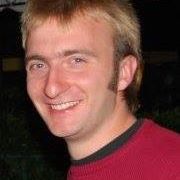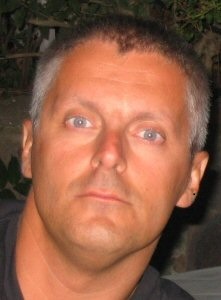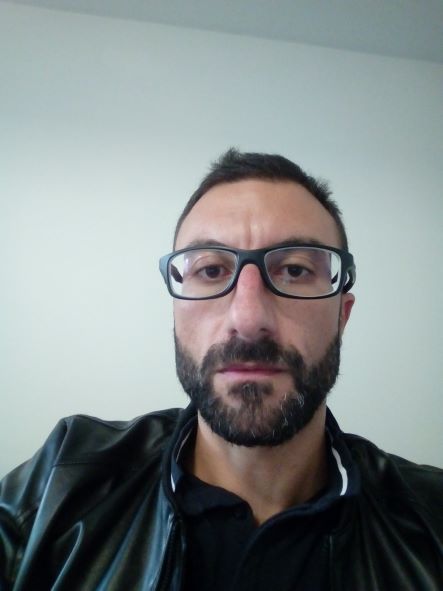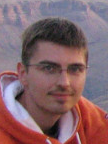Studying at the University of Verona
Here you can find information on the organisational aspects of the Programme, lecture timetables, learning activities and useful contact details for your time at the University, from enrolment to graduation.
Academic calendar
The academic calendar shows the deadlines and scheduled events that are relevant to students, teaching and technical-administrative staff of the University. Public holidays and University closures are also indicated. The academic year normally begins on 1 October each year and ends on 30 September of the following year.
Course calendar
The Academic Calendar sets out the degree programme lecture and exam timetables, as well as the relevant university closure dates..
| Period | From | To |
|---|---|---|
| I semestre | Oct 1, 2020 | Jan 29, 2021 |
| II semestre | Mar 1, 2021 | Jun 11, 2021 |
| Session | From | To |
|---|---|---|
| Sessione invernale d'esame | Feb 1, 2021 | Feb 26, 2021 |
| Sessione estiva d'esame | Jun 14, 2021 | Jul 30, 2021 |
| Sessione autunnale d'esame | Sep 1, 2021 | Sep 30, 2021 |
| Session | From | To |
|---|---|---|
| Sessione Estiva | Jul 15, 2021 | Jul 15, 2021 |
| Sessione Autunnale | Oct 15, 2021 | Oct 15, 2021 |
| Sessione Invernale | Mar 15, 2022 | Mar 15, 2022 |
| Period | From | To |
|---|---|---|
| Festa dell'Immacolata | Dec 8, 2020 | Dec 8, 2020 |
| Vacanze Natalizie | Dec 24, 2020 | Jan 3, 2021 |
| Epifania | Jan 6, 2021 | Jan 6, 2021 |
| Vacanze Pasquali | Apr 2, 2021 | Apr 5, 2021 |
| Santo Patrono | May 21, 2021 | May 21, 2021 |
| Festa della Repubblica | Jun 2, 2021 | Jun 2, 2021 |
Exam calendar
Exam dates and rounds are managed by the relevant Science and Engineering Teaching and Student Services Unit.
To view all the exam sessions available, please use the Exam dashboard on ESSE3.
If you forgot your login details or have problems logging in, please contact the relevant IT HelpDesk, or check the login details recovery web page.
Academic staff
 mariacaterina.baruffi@univr.it
mariacaterina.baruffi@univr.it
 mariano.ceccato@univr.it
mariano.ceccato@univr.it
 vittoria.cozza@univr.it
vittoria.cozza@univr.it
 giovannigerardo.muscolo@univr.it
giovannigerardo.muscolo@univr.it
Study Plan
The Study Plan includes all modules, teaching and learning activities that each student will need to undertake during their time at the University.
Please select your Study Plan based on your enrollment year.
1° Year
| Modules | Credits | TAF | SSD |
|---|
Compulsory courses for Embedded & IoT SystemsCompulsory courses for Smart systems &data analytics2° Year activated in the A.Y. 2021/2022
| Modules | Credits | TAF | SSD |
|---|
Compulsory courses for Embedded & IoT SystemsCompulsory courses for Robotics systemsCompulsory courses for Smart systems &data analytics| Modules | Credits | TAF | SSD |
|---|
Compulsory courses for Embedded & IoT SystemsCompulsory courses for Smart systems &data analytics| Modules | Credits | TAF | SSD |
|---|
Compulsory courses for Embedded & IoT SystemsCompulsory courses for Robotics systemsCompulsory courses for Smart systems &data analytics| Modules | Credits | TAF | SSD |
|---|
3 courses to be chosen among the followingLegend | Type of training activity (TTA)
TAF (Type of Educational Activity) All courses and activities are classified into different types of educational activities, indicated by a letter.
Robot programming and control (2020/2021)
Teaching code
4S009026
Credits
6
Language
English
Scientific Disciplinary Sector (SSD)
INF/01 - INFORMATICS
The teaching is organized as follows:
Teoria
Laboratorio
Learning outcomes
The course aims to provide the following knowledge: programming of complex robotic systems with particular reference to perception, navigation, planning and control.
At the end of the course the student will have to demonstrate that he has the following skills to apply the acquired knowledge: to provide the knowledge to implement perception, navigation, planning and control algorithms for robotic systems; show knowledge of the main programming methods of robotic systems in order to (a) perceive the surrounding environment; (b) plan movement paths; (c) to control movement and possible interaction with the environment.
Furthermore, he must have the ability to define the technical specifications for selecting, integrating and designing software modules for robotic systems and be able to deal with other engineers (e.g. electronic, automatic, mechanical) to design advanced software architectures for complex robotic systems. Finally, he must have the ability to continue his studies independently in the field of designing software architectures for robotic systems.
Bibliography
| Activity | Author | Title | Publishing house | Year | ISBN | Notes |
|---|---|---|---|---|---|---|
| Teoria | Dalle lezioni | Appunti dalle lezioni | 2021 | |||
| Teoria | L. Sciavicco e B. Siciliano | Robotica Industriale -- Modellistica e Controllo di Manipolatori (Edizione 2) | McGraw Hills | 2002 | ||
| Laboratorio | Dalle lezioni | Appunti dalle lezioni | 2021 |
Type D and Type F activities
Le attività formative in ambito D o F comprendono gli insegnamenti impartiti presso l'Università di Verona o periodi di stage/tirocinio professionale.
Nella scelta delle attività di tipo D, gli studenti dovranno tener presente che in sede di approvazione si terrà conto della coerenza delle loro scelte con il progetto formativo del loro piano di studio e dell'adeguatezza delle motivazioni eventualmente fornite.
| years | Modules | TAF | Teacher |
|---|---|---|---|
| 1° 2° | Matlab-Simulink programming | D |
Bogdan Mihai Maris
(Coordinator)
|
| years | Modules | TAF | Teacher |
|---|---|---|---|
| 1° 2° | Introduction to 3D printing | D |
Franco Fummi
(Coordinator)
|
| 1° 2° | Python programming language | D |
Vittoria Cozza
(Coordinator)
|
| 1° 2° | HW components design on FPGA | D |
Franco Fummi
(Coordinator)
|
| 1° 2° | Rapid prototyping on Arduino | D |
Franco Fummi
(Coordinator)
|
| 1° 2° | Protection of intangible assets (SW and invention)between industrial law and copyright | D |
Roberto Giacobazzi
(Coordinator)
|
| years | Modules | TAF | Teacher |
|---|---|---|---|
| 1° 2° | The fashion lab (1 ECTS) | D |
Maria Caterina Baruffi
(Coordinator)
|
| 1° 2° | The course provides an introduction to blockchain technology. It focuses on the technology behind Bitcoin, Ethereum, Tendermint and Hotmoka. | D |
Nicola Fausto Spoto
(Coordinator)
|
Career prospects
Module/Programme news
News for students
There you will find information, resources and services useful during your time at the University (Student’s exam record, your study plan on ESSE3, Distance Learning courses, university email account, office forms, administrative procedures, etc.). You can log into MyUnivr with your GIA login details: only in this way will you be able to receive notification of all the notices from your teachers and your secretariat via email and soon also via the Univr app.
Graduation
Deadlines and administrative fulfilments
For deadlines, administrative fulfilments and notices on graduation sessions, please refer to the Graduation Sessions - Science and Engineering service.
Need to activate a thesis internship
For thesis-related internships, it is not always necessary to activate an internship through the Internship Office. For further information, please consult the dedicated document, which can be found in the 'Documents' section of the Internships and work orientation - Science e Engineering service.
Final examination regulations
Upon completion of the Master’s degree dissertation, students are awarded 24 CFU, which equates to no more than 4-5 months of full-time work.
Goals
The primary goal of a dissertation is to develop an original study that may include an application project or a theoretical topic related to specific design issues, or a critical review of the most recent developments in a given field of study. During the preparation of the dissertation, under the guidance of the Supervisor and co-supervisors (if any), the student is expected to conduct an in- depth study of the chosen topic, while gaining the ability to summarise and creatively apply the knowledge acquired. The dissertation should focus on topics of engineering and computer science, or closely related areas of study. The work shall consist in the written presentation of activities that may be structured as follows:
- design and development of applications or systems;
- critical analysis of contributions from the scientific literature;
- original research contributions.
The dissertation shall be written in English and can be presented either in English or in Italian, also relying on multimedia tools such as presentations and videos.
Assessment methods and examination procedures
Each dissertation can be either internal or external, depending on whether it is carried out at the University of Verona or in collaboration with another institution. For each dissertation a Supervisor, one or more co-supervisors (optional) and an Examiner will be appointed. The Examiner is appointed by the Computer Science Teaching Committee at least 20 days before the presentation of the dissertation, once the student's eligibility to take the Master's degree examination has been verified. With regard to the legal aspects related to the dissertation and its scientific outcomes (e.g. intellectual property of research outcomes), please refer to the relevant legislation and the University Regulations.
Evaluation of the dissertation
The Supervisor, the co-supervisor/s (if any) and the Examiner will evaluate the dissertation based on the following criteria:
- level of in-depth analysis carried out, in relation to the most recent developments in the areas related to information technology, with a focus on medical and biological applications;
- scientific and/or technological outcomes of the dissertation;
- student’s critical thinking;
- student’s experimental and/or formal development;
- student’s ability to carry out independent work (this point will not be assessed by the Examiner);
- value of the methodologies used;
- accuracy in planning and writing the dissertation.
Graduation mark
The graduation mark (based on a 110-point scale) is a whole value between 66/110 and 110/110 and is calculated by adding together the following elements (then rounding the result to the nearest whole number, e.g. 93.50 => 94; 86.49 => 86):
- 1) the average of the marks gained in the modules, weighted according to CFU, converted to a 110-point scale;
- 2) evaluation of the dissertation and the oral presentation during the final examination, based on the following methods:
- a) each of the points 1-7 listed above will be assigned a coefficient between 0 and 1 (fractional coefficient with one decimal place);
- b) the quality of the presentation will be assessed by awarding a coefficient between 0 and 1 (fractional coefficient with one decimal place);
- c) the sum of the points resulting from (a) and (b).
The Graduation Committee may award one extra point in the following cases: cum laude honours obtained in the exams taken during the degree programme; participation in internships officially recognised by the Computer Science Teaching Committee; taking extra modules; and the achievement of the degree in a time that is shorter than the normal duration of the degree programme. If the final score is 110/110, the Graduation Committee may award cum laude honours by unanimous decision.
External dissertations
An external dissertation is a work carried out in collaboration with an institution/body other than the University of Verona. In this case, the topic of the dissertation must be agreed in advance with a Supervisor from the University of Verona. In addition, the student must indicate at least one co- supervisor belonging to the external institution/body, who will support the student during the work on the dissertation. The Supervisor and the co- supervisors must be indicated in the online graduation application. The insurance aspects relating to the student's stay at the external institution are regulated by the regulations in force at the University of Verona. If the dissertation involves a period of training at the external institution/body, then it is necessary that the University of Verona enters into a specific agreement with such institution/body. The scientific outcomes of the dissertation will be available to all parties involved. In particular, the contents and results of the dissertation are to be considered public. For all matters not strictly scientific (e.g. agreements, insurance) the resolution of the Academic Senate of 12 January 1999 shall be taken as a reference.
Supervisor, co-supervisors, examiners
The dissertation presentation is introduced by the Supervisor. Professors belonging to the Department of Computer Science may be appointed as Supervisors, as well as any external lecturers who are deemed suitable by the Teaching Committee based on their area of study and level of expertise.
In addition to those who have the above requirements to be appointed as Supervisor, the following individuals may be appointed as co-supervisors: researchers working in external research institutes, research grant holders, post-doctoral fellowship holders, PhD students, technical staff of the Department, external experts appointed by an Italian University, corporate officers who have a remarkable experience in the field relevant to the topic of the dissertation. Examiners may be appointed among lecturers and researchers at the Department of Computer Science of the University of Verona, who are deemed to be experts in the specific field of the dissertation topic.
Graduation Committee
The Graduation Committee shall include five members, of which at least four are professors in the Master's degree programme in Computer Engineering for Robotics and Smart Industry. Based on the number of graduates, the Computer Science Teaching Committee will identify the most appropriate organisational methods for administering the examination, and it shall make available the calendar of tests at least one week before the examination itself. The procedures and deadlines for the submission of the graduation application are established by the Computer Science Teaching Committee and by the relevant offices.
List of theses and work experience proposals
| theses proposals | Research area |
|---|---|
| Domain Adaptation | Computer Science and Informatics: Informatics and information systems, computer science, scientific computing, intelligent systems - Computer graphics, computer vision, multi media, computer games |
| Domain Adaptation | Computer Science and Informatics: Informatics and information systems, computer science, scientific computing, intelligent systems - Machine learning, statistical data processing and applications using signal processing (e.g. speech, image, video) |
| Domain Adaptation | Computing Methodologies - IMAGE PROCESSING AND COMPUTER VISION |
| Domain Adaptation | Computing methodologies - Machine learning |
| THESIS_1: Sensors and Actuators for Applications in Micro-Robotics and Robotic Surgery | Various topics |
| THESIS_2: Force Feedback and Haptics in the Da Vinci Robot: study, analysis, and future perspectives | Various topics |
| THESIS_3: Cable-Driven Systems in the Da Vinci Robotic Tools: study, analysis and optimization | Various topics |
Attendance
As stated in the Teaching Regulations for the A.Y. 2022/2023, attendance at the course of study is not mandatory.

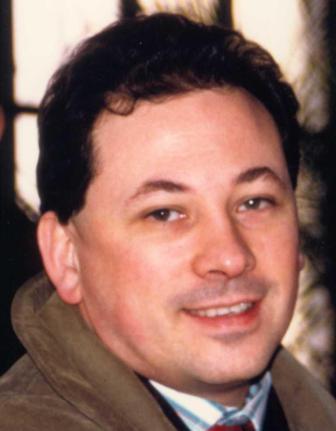
 +39 045 802 7980
+39 045 802 7980








